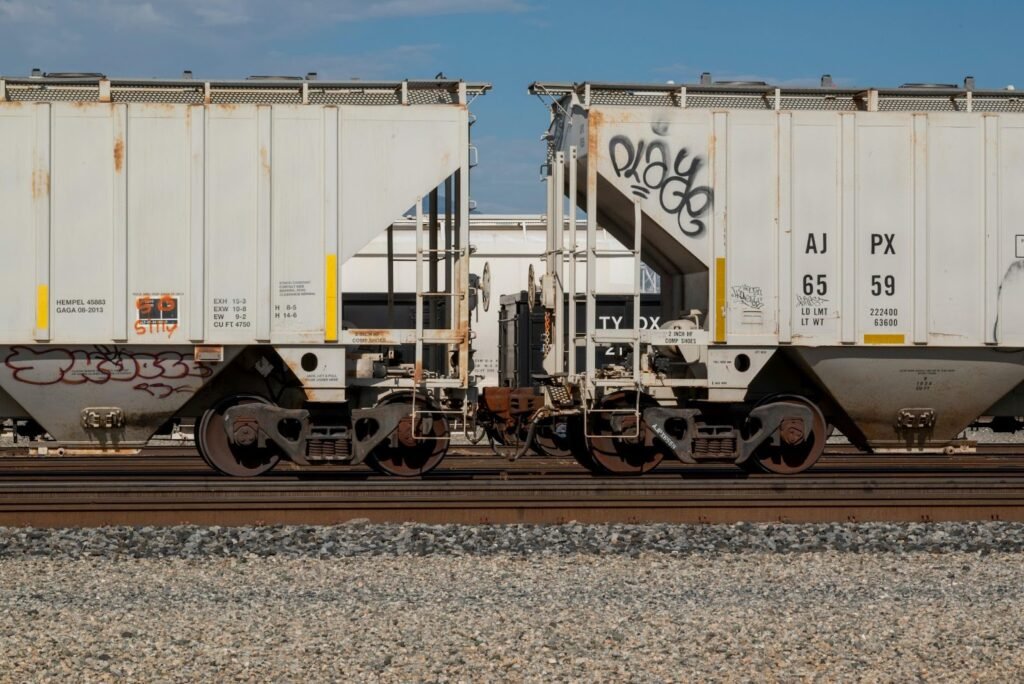Introduction
Train crashes, while relatively infrequent compared to other modes of transportation, can have catastrophic consequences. When they do occur, they often become the subject of intense public scrutiny and media attention. This article aims to provide a comprehensive overview of train crashes, addressing common questions and concerns.

Causes of Train Crashes
Understanding the factors that contribute to train accidents is crucial for preventing future tragedies. While every incident is unique, some common causes include:
Human Error: This encompasses a wide range of factors, such as operator fatigue, negligence, or mistakes in judgment.
Infrastructure Failures: Defects in tracks, signals, or bridges can lead to derailments and collisions.
Equipment Malfunction: Mechanical failures in locomotives or rolling stock can contribute to accidents.
Weather Conditions: Severe weather events, such as heavy rain, snow, or fog, can impair visibility and create hazardous conditions.
Terrorism and Sabotage: In rare cases, intentional acts of violence can cause train crashes.
Safety Measures in Place
The railway industry has implemented numerous safety measures to minimize the risk of accidents. Some of these include:
Positive Train Control (PTC): This technology prevents trains from exceeding speed limits, colliding with other trains, or entering occupied tracks.
Signal Systems: Advanced signaling systems help maintain safe distances between trains and prevent collisions.
Track Maintenance: Regular inspections and repairs are essential for ensuring track integrity.
Crew Training: Rigorous training programs are designed to equip railway personnel with the skills and knowledge to handle emergencies.
Emergency Response Plans: Detailed plans are in place to coordinate rescue and recovery efforts in the event of a crash.
The Impact of Train Crashes
Train crashes can have far-reaching consequences, affecting individuals, communities, and the economy. Some of the key impacts include:
Loss of Life and Injuries: The most tragic outcome of a train crash is the loss of human life, and many survivors sustain serious injuries.
Economic Impact: Crashes can disrupt transportation networks, leading to financial losses for businesses and individuals.
Environmental Damage: Accidents involving hazardous materials can cause significant environmental pollution.
Psychological Trauma: The aftermath of a train crash can have a lasting emotional impact on survivors, families, and first responders.
Public Concerns and Questions
People often have many questions following a train crash. Some common concerns include:
Safety of Rail Travel: Many individuals wonder about the safety of train travel in general. While accidents do occur, the overall safety record of trains is relatively good.
Emergency Preparedness: People want to know what to do in case of a train emergency. It’s essential to familiarize oneself with emergency procedures and evacuation plans.
Liability and Compensation: Questions arise about who is responsible for accidents and how victims can seek compensation for their losses.
Investigation and Accountability: The public demands thorough investigations into train crashes to identify the causes and prevent future occurrences.
Post-Traumatic Stress Disorder (PTSD)
Many survivors of train crashes develop PTSD. Symptoms can include flashbacks, nightmares, avoidance of reminders of the crash, hypervigilance, and difficulty concentrating. The constant fear of another accident can significantly impact daily life.
Grief and Loss
The loss of loved ones in a train crash can lead to overwhelming grief. Survivors may experience feelings of guilt, anger, and disbelief. The process of mourning is often complicated by the sudden and tragic nature of the loss.
Community Impact
Train crashes can have a profound impact on entire communities. The sense of safety and security can be shattered, leading to fear and anxiety among residents. Children may experience fear of transportation or separation from loved ones.
Support and Recovery
It is crucial for survivors and affected communities to receive adequate support. Mental health professionals can provide therapy and counseling to help individuals cope with trauma. Support groups are able to supply a sense of home and understanding.
Preventing Future Trauma
While no method can completely eliminate the risk of train crashes, investing in safety measures, conducting thorough investigations, and learning from past accidents can help reduce the likelihood of future tragedies.
By understanding the psychological impact of train crashes, we can develop more effective support systems and prevention strategies.
FAQs
General Questions
What causes train crashes?
Train crashes can be caused by a variety of factors, including human error, equipment failure, weather conditions, track conditions, and collisions with other objects.
How can train crashes be prevented?
Improved safety measures, such as advanced braking systems, positive train control, and increased crew training can help prevent train crashes.
What is the role of technology in preventing train crashes?
Technology plays a significant role in preventing train crashes. Systems like Automatic Train Protection (ATP) and Positive Train Control (PTC) can help prevent accidents by monitoring train speed and location.
What happens after a train crash?
Emergency responders, including paramedics, firefighters, and law enforcement, are typically dispatched to the scene of a train crash. The injured are transported to hospitals, and investigations into the cause of the crash begin.
Passenger Safety and Rights
What should passengers do in case of a train crash?
Follow the instructions of the train crew and emergency personnel. If possible, evacuate the train in an orderly manner and move away from the tracks.
What are the rights of passengers involved in a train crash?
Passengers may be able to seek compensation for harm, destruction of property, and emotional anguish. It is imperative to document the incident and seek representation in court.
What is the role of the railway company in train crash incidents?
The railway company is responsible for the safety of its passengers and employees. In case of a train crash, the company is obligated to provide assistance to victims and conduct a thorough investigation into the incident.
Conclusion
Train crashes are complex events with multiple contributing factors. While safety measures have improved over the years, the risk of accidents can never be entirely eliminated. Individuals can become better educated and prepared through knowing about the effects, causes, and safety steps to prevent them.
T o read more, click here.
